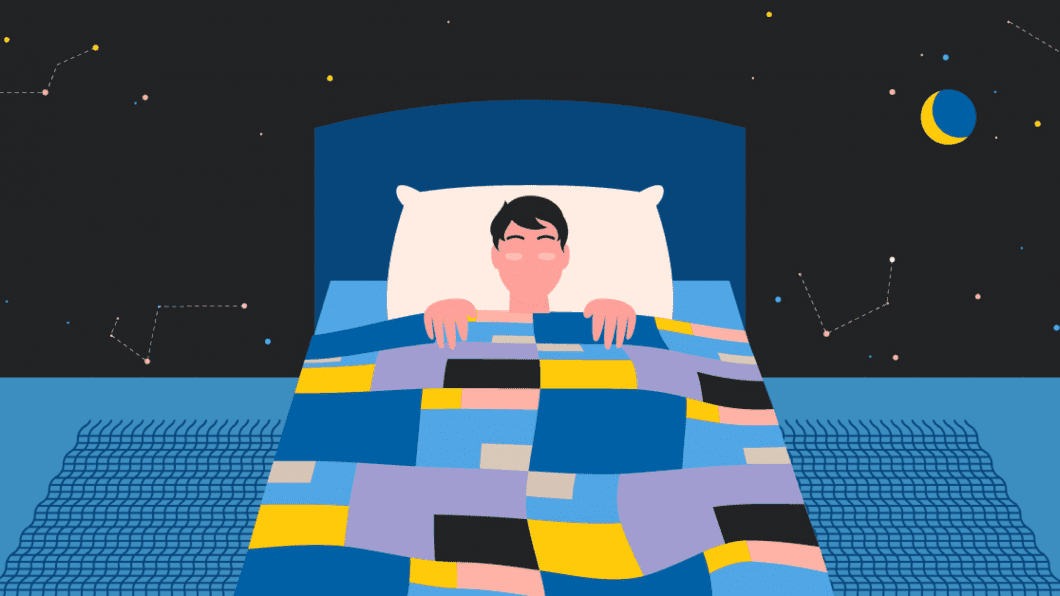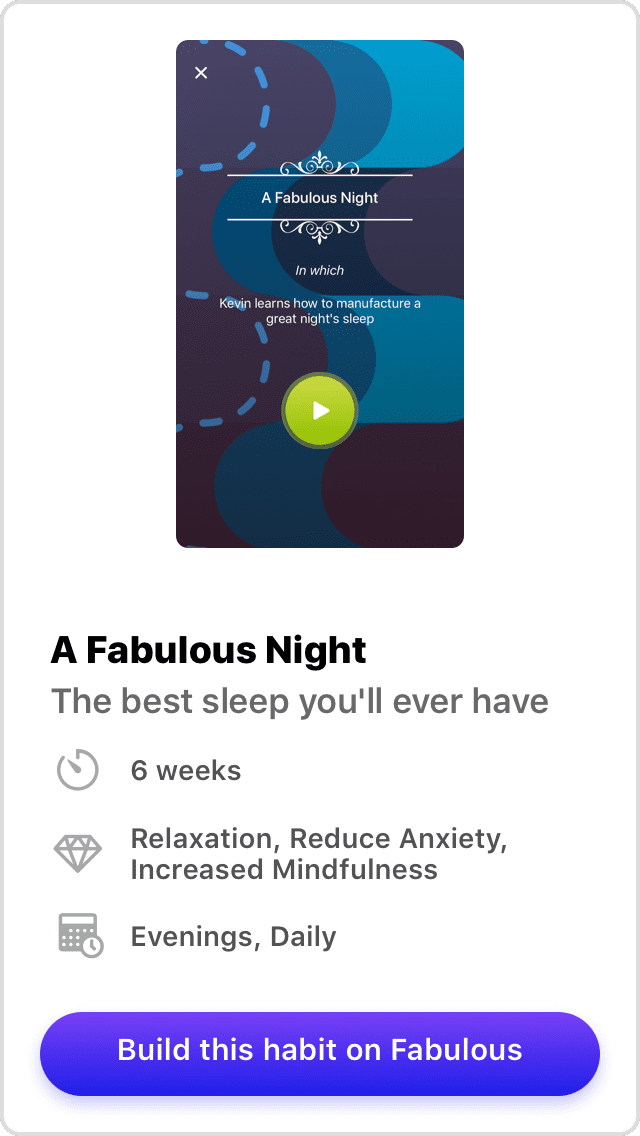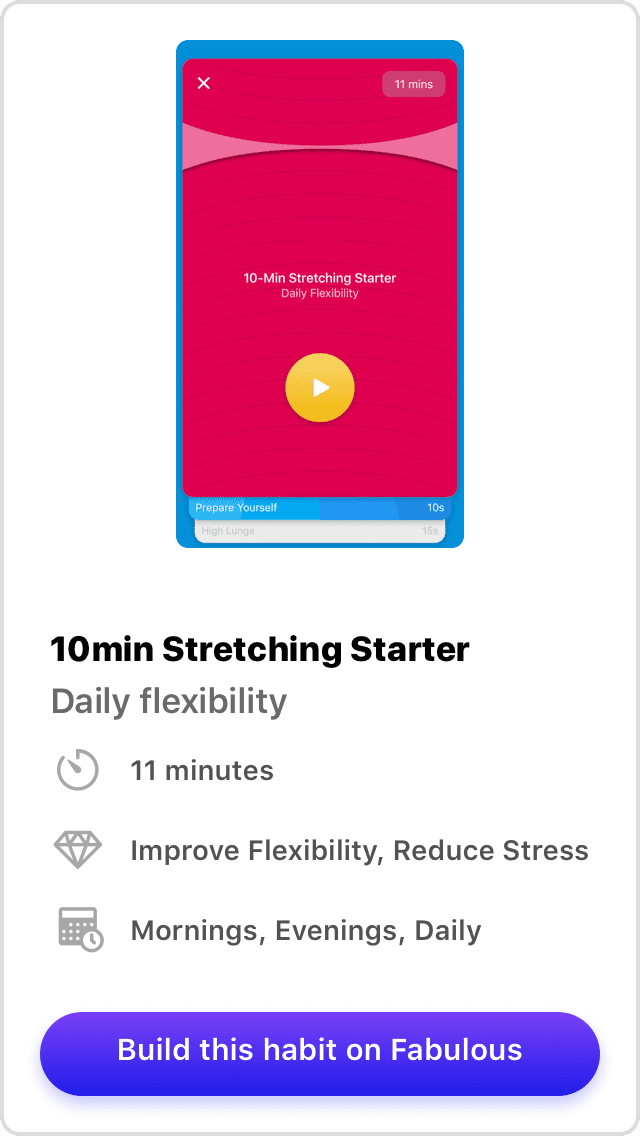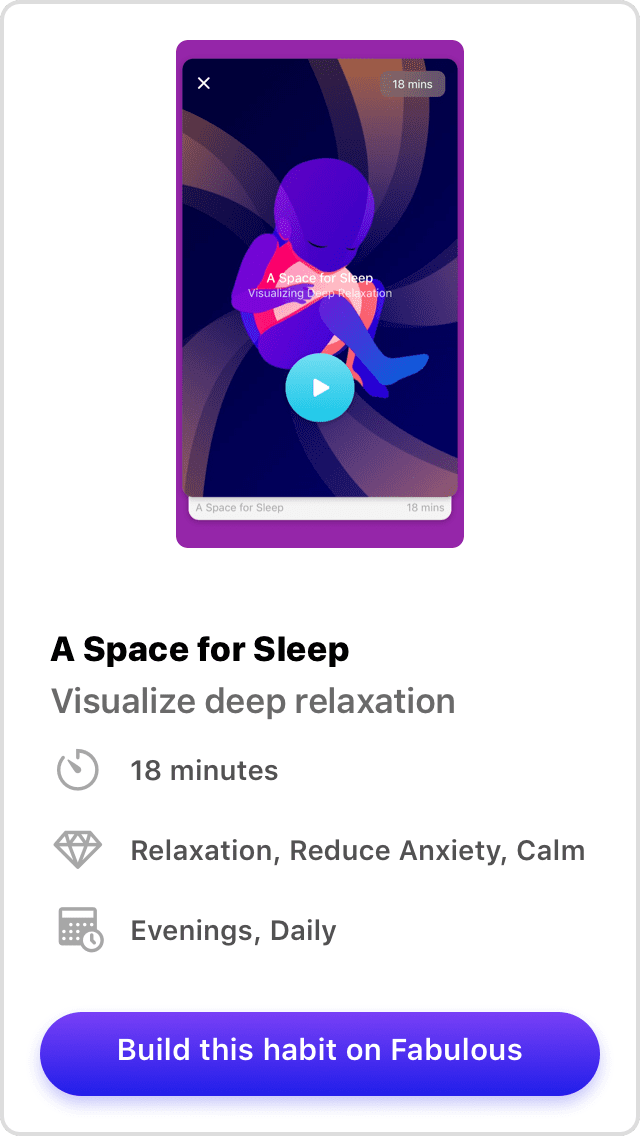Do you find yourself struggling to fall asleep at night? Maybe you lie back and stare at the ceiling or toss and turn trying to get comfortable. But, no matter what you do, you just can’t seem to drift off. If that sounds at all familiar, let me ask you something: What does your bedtime routine look like?
Many of us lay in bed and scroll through our phones, checking our email or social media accounts. Others might watch television or play on their computers. Others still may not even make it to bed at the same time each night. In fact, your “bedtime routine” might not be much of a routine at all.
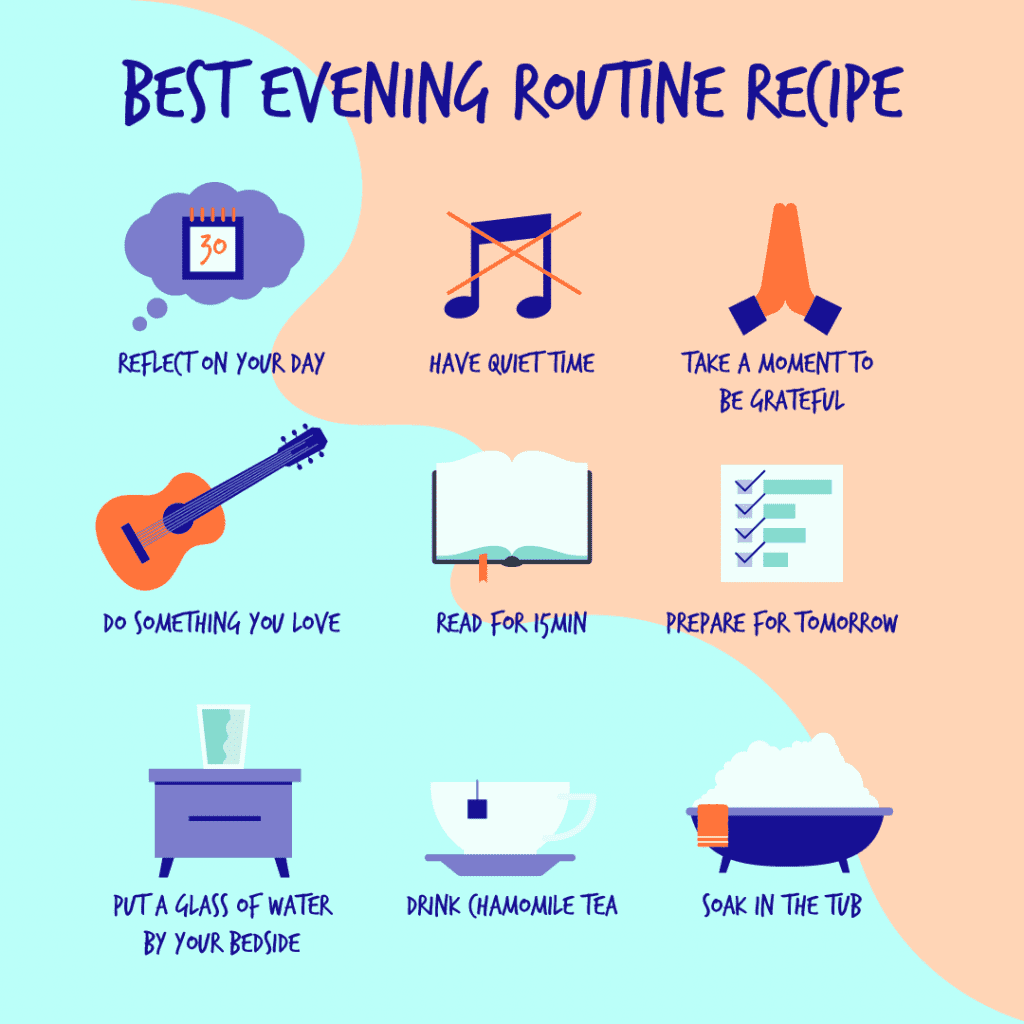
The bad news is that, if you’re like the millions of other sleep-deprived adults out there without a set nightly routine, that may very well be the source of your sleep troubles. The good news is developing a bedtime routine is not only easy, it may also offer some other unexpected benefits to your everyday life.
If you’d like a more thorough, guided approach to building the bedtime routine of your dreams (pun absolutely intended), try “A Fabulous Night” Journey
Start Early
Ideally, you’ll want to give yourself at least two hours to get ready for bed. This might sound like a lot, but your body needs time to prepare itself for sleep. So, use that time to your advantage and help your body along with some triggers.
Warm Up to Wind Down
When you sleep, your internal body temperature decreases slightly. So, lowering your body temperature before bed can be an effective signal to your brain that it’s time to get sleepy. One seemingly counterproductive way to lower your body temperature is to raise it slightly, in a warm shower or bath, or with some gentle exercise like yoga. When you heat yourself up, your blood vessels dilate to release that excess heat, which, eventually, leaves you slightly chillier than you were when you started.
Have you ever tried the Fabulous 10-Minute Stretching Starter exercise? It’s a great way to warm up your body–and soothe your daily aches and pains–before crawling into bed.
Write Out Your Worries
One of our greatest sources of insomnia is our worries for the future, be it tomorrow or ten years from now. Ruminating can keep you up for hours, but it’s like rocking in a rocking chair; it’s something to do, but it’s not really going to get you anywhere. Instead of keeping all those thoughts in your brain, where they’re causing trouble, write them down. Plan out what you have to do tomorrow tonight so you don’t have to spend the whole night worrying about it when you should be sleeping. Or, if your worries are more abstract than that, keep a worry log and fill it every night before you go to bed. You can review your worries in the morning; you might even find that, after a good night’s sleep, your troubles don’t seem as bad as they did before.
Kill the Lights
Light–and its absence–is the primary conductor of your circadian rhythm, or sleep/wake cycle. Simply put, when our eyes sense light, our brain interprets this to mean that it’s daytime, i.e., time to be awake. Darkness has the opposite effect; our brain believes it’s nighttime, or time to sleep.
Reducing the amount of light in your environment at least an hour before bed is the single most useful thing you can do to help you wind down. Unfortunately, this includes the use of screens, like phones and televisions, as the light they emit can confuse your brain into thinking it’s still daytime. Instead of those things, try curling up with a good book, listening to some relaxing music or a podcast, meditating, journaling, or working on a craft.
Fabulous also has a guided meditation designed to help you fall asleep. Check out “A Space for Sleep.”
Final Things to Keep in Mind
You are building a bedtime routine. That is to say, adapting these nighttime rituals won’t fix your sleep habits overnight! It can take weeks or even months for you to feel the full effect of your efforts, so please don’t get discouraged if you’re not seeing immediate results.
It’s equally important to maintain consistency. Going to bed and waking up at the same times, even on the weekends or during holidays, will help train your brain faster. In fact, you may notice with time that you find yourself getting sleepy before bed without much prompting!
Finally, the quality of your bedtime routine isn’t the only thing that affects the quality of your sleep. Your mattress and pillows can keep you awake at night if they’re old or falling apart and should be replaced regularly. The National Sleep Foundation recommends replacing your mattress every five to seven years and your pillows annually. If you still find yourself struggling to catch your nightly 40 winks, you may want to consult with a doctor, as it could be the result of an underlying medical issue.
Sweet dreams!
